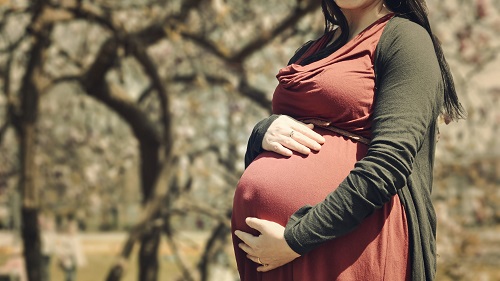|
|

Why middle-aged women are replacing teenagers in maternity wards

In recent years the conception rate has risen for women over 40. In her 20s my dear Helen was much too busy to have children.
After going to university as a mature student, she spent a year in Australia then in France, to learn the language. But by the time she decided that she was ready to settle down, she struggled to find the right partner to start a family.
So at 39, she decided to froze her eggs. Eight years later and she lacking the right partner, she decided to “go solo”, giving birth to a healthy boy with the help of the Sperm Bank.
“I was desperate to have a kid of my own,” she confessed to me. “But I didn’t want to have it with the wrong person.”
Helen belongs to a small but rapidly growing cohort of middle-aged women that decide to have a child at an older age. As in other developed countries around the world, the fertility rate in England is continuously declining. But among women aged 40 and over the conception rate is rising. But among women aged 40 and over the conception rate is rising. This rate has doubled since 1990. Meanwhile, the conception rate of teenagers (under 20) has halved and the conception rates of women over 40 and under 20 are now close to converging.
Middle-aged maternity may soon be more common than teenage pregnancy.
The evolution of medicine can explain this convergence. From 1991 to 2016 birth rates from IVF treatment have increased by over 85%. In 2016, over 20,000 babies were born using this method, while nearly three-fifths of women who underwent IVF were aged over 35. The demand for IVF increases as more and more women see the success rates of the method.
Between 1997 and 2010 the governments of developed countries dedicated a lot of funds to reduce pregnancy rates among very young girls. Information on contraception as well as promotion of the advantages of education and a professional career. Physicians trained in contraceptive methods such as the IUD as more effective than the birth control pill or the condom.
All this has contributed substantially to the reduction of unintended pregnancies in girls under the age of 20.
However, the best birth control is ambition. Today, women in their 20s prioritize their education and career and not the creation of a family.
In England, the percentage of women with higher education has increased from 10% to 56% since 2006.
However, this is happening in large urban centers. In the rural areas of developed countries, the percentage of women who have a child at an early age is still high.
This leads us to the conclusion that education and career opportunities should not be limited to large urban centers but should be equally distributed, in order to enable young girls to make a conscious choice about when to start a family.
By subscribing you agree to our privacy policy and to receiving our news and updates via email. |
We use cookies to upgrade your online experience. You can read more here . | Accept Accept |
ABOUT US | FOR PROFESSIONALS | POPULAR FIELDS Finance, Insurance, Consulting, Legal & Bussines Services Agriculture, Food & Environment Information Technology, Telecom & Home Appliances Health and Beauty | CUSTOMER SUPPORT (+30) 215 215 22 21 Daily: 09:00 - 18:00 (UTC+2) |
Privacy Policy Cookies Terms of Service Created by DEVELOPGREECE| © Kosmogram S.A. All rights reserved. |

